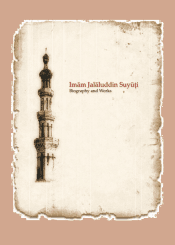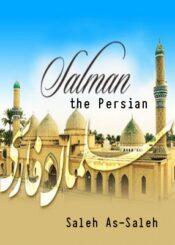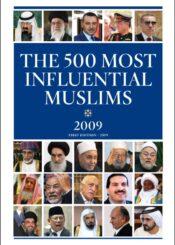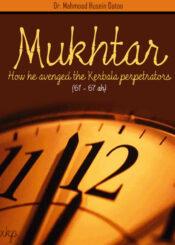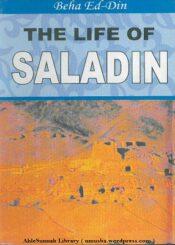A Meeting With Sayyid Muhammad Baqir Al-Sadr
A Meeting With Sayyid Muhammad Baqir Al-Sadr
0 Vote
308 View
Author: Tijani Al-Samawi I went with Abu Shubbar to al-Sayyid Muhammad Baqir al-Sadr's house, and on the way he honoured me and talked to me about the famous Ulama and about Taqlid (adoption of a legal decision by the Mujtahid) and so on ... until we entered the house where we found al Sayyid al Sadr surrounded by many young turbaned students. Al-Sayyid stood up and greeted us, then I was introduced to him and he welcomed me warmly and sat me next to him. After that he started asking me about Tunisia and Algeria and about famous Ulama like al-Khidr Husayn and al-Thahir ibn Ashoor and others. I enjoyed his talk, and despite his high position and the great respect he commands from his students, I found myself at ease with him and felt as if I had known him before. I benefitted so much from that meeting because I listened to the questions asked by the students and his answers to them, also I appreciated then the idea of adopting the decision of the living Ulama who could answer all sorts of questions directly and clearly. I became convinced that the Shia are Muslims worshipping Allah alone, who believe in the message of our Prophet Muhammad (saw). At the beginning I suspected that what I saw was just acting, or perhaps as they call it Taqiyyah, i.e. they show what they do not believe; but these suspicions disappeared quickly since it was inconceivable that the hundreds of people that I saw or heard coordinated their acting, and why should there be acting any- way? Besides who was I, and why should they be concerned about me to the extent that they used Taqiyyah with me? And all their books, whether they were old ones that had been written centuries ago or the newly published ones, all professed the unity of Allah and praise His Messenger Muhammad (saw). There I was, in the house of al-Sayyid Muhammad Baqir al-Sadr, the famous religious authority inside Iraq and outside it, and every time the name of Muhammad (saw) was mentioned, the entire audience shouted in one voice "May Allah's blessings be upon Muhammad and his household." When the time for prayer was due, we left the house and went to the mosque, which was next door, and al-Sayyid Muhammad al-Sadr led the midday and afternoon prayers. I felt as if I was living among the Companions (of the Prophet), for there was a solemn invocation from one of the men who had a moving voice, and when he finished the invocation the whole audience shouted, "May Allah's blessing be upon Muhammad and his household." The invocation was basically to thank and glorify Allah, the Great Majesty, and then Muhammad (saw) and his good and purified posterity. After the prayer, al-Sayyid sat in the Mihrab (the prayer niche) and people came to greet him, some asked him private questions, others asked him general questions, and he answered each one of them accordingly. When the person obtained an answer for his question, he kissed the hand of al- Sayyid then left, what lucky people to have such a dignified learned Imam who lives their experiences and solves their problems. Al-Sayyid showed me so much care and generosity to the extent that I forgot all about my family and tribe, and felt that if I stayed for one month with him, I would have become a Shii, because of his manners, modesty and generosity. Whenever I looked at him he smiled and asked me if I needed anything, and I did not leave his company during the four days, only when I wanted to go to sleep. There were many visitors who came to see him from all over the world; there were Saudi Shii from Hijaz, others came from Bahrain, Qatar, United Arab Emirates, Lebanon, Syria, Iran, Afghanistan, Turkey and Black Africa; and al-Sayyid spoke to each one of them and solved their problems, later they left him feeling happy and comforted. Here I would like to mention a case which was brought to al-Sayyid when I was in his company, and I was very impressed by the way he dealt with it. I mention it because of its historical importance so that the Muslims know what they have lost by leaving the rule of Allah. Four men, who were probably Iraqis, judging by their accents, came to see al-Sayyid Muhammad Baqir al-Sadr. One of them had inherited a house from his grandfather, who had died a few years ago, and had sold that house to a second person (he was present then). One year after the completion of the sale, two brothers came and proved that they were also legal inheritors of the dead man (i.e. the father). The four of them sat before al-Sayyid and each one of them produced a number of papers and deeds, which al-Sayyid read, and after he spoke for a few minutes with the men, he passed a fair judgement. He gave the purchaser the full right to his house, and asked the seller to pay to his two brothers their shares from the selling price, and after that they stood up and kissed al-Sayyid's hand and embraced each other. I was astonished about what had happened and asked Abu Shubbar, "Has the case ended?" He said, "Yes, everyone received his right. Praise be to Allah!" In such case, and in such a short time, only a few minutes, the problem was solved. A similar case in our country would have taken at least ten years to resolve, some of the plaintiffs would die and their sons resume the case; often the legal costs exceed the price of the house. The case would move from the Magistrate Court to the Appeal Court to the Court of Review, and at the end no one is satisfied, and hatred between People and Tribes are created. Abu Shubbar commented, We have the same thing if not worse." I asked, "How?" He said, if people take their cases to the state courts, then they would go through the same troubles which you have just mentioned, but if they follow the Religious Authority and commit themselves to the Islamic Laws, then they would take their cases to him and the problem would be solved in a few minutes, as you saw. And what is better than the Law of Allah for people who could comprehend? Al-Sayyid al-Sadr did not charge them one Fils, but if they went to the state courts, then they would have paid a high price." I said, "Praise be to Allah! I still cannot believe what I have seen, and if I had not seen it with my eyes, I would not have believed it at all." Abu Shubbar said, "You do not have to deny it brother, this is a simple case in comparison with other more complicated ones which involve blood. Even so, the Religious Authorities do consider them, and it takes them a few hours to resolve." I said with astonishment, "Therefore you have two governments in Iraq, a government of the state and a government of the clergy. He replied, "No, we have a government of the state only, but the Muslims of the Shii Madhhab who follow the Religious Authorities, have nothing to do with the government of the state, because it is not an Islamic government. They are subjects of that government simply because of their citizenship, the taxes, civil laws and personal status; so if a committed Muslim had an argument with a non committed Muslim, then the case must be taken to the state courts, because the latter would not accept the judgement of the Religious Authorities. However, if two committed Muslims had an argument, then there is no problem, whatever the Religious Authorities decide is acceptable to all parties. Thus, all cases seen by the Religious Authorities are solved on a day-to-day basis, whereas other cases linger on for months and years." It was an incident that made me feel content with rule of Allah, praise be to Him the Exalted one, which helped me to comprehend the words of Allah in His Glorious Book: ... And whoever did not judge by what Allah revealed, those are they that are the unbelievers (Holy Qur'an 5:44). ... And whoever did not judge by what Allah revealed, those are they that are the unjust (Holy Qur'an 5:45). ... And whoever did not judge by what Allah revealed, those are they that are the transgressors (Holy Qur'an 5:47). That incident aroused in me feelings of anger and resentment about those who change the just rules of Allah with some unjust, man-made rules. They even go further, and with all impudence and sarcasm, they criticize the divine rules and condemn them for being barbaric and inhuman because it draws the limits. cuts the hand of the thief, stones the adulterer and kills the killer. So where did all these new theories, that are foreign to us and our culture come from? There is no doubt they came from the West and from the enemies of Islam who know that the application of Allah's rules mean their inevitable destruction because they are thieves, traitors, adulterers, criminals and murderers. I had many discussions with al-Sayyid al-Sadr during these days, and I asked him about everything I had learnt through the friends who talked to me about their beliefs and what they thought about the Companions of the Prophet (saw), and about Ali and his sons ... beside many other issues that we used to disagree upon. I asked al-Sayyid al-Sadr about Imam Ali and why they testify for him in the Adhan [the call for prayers] that he is "Waliy Allah" [the friend of Allah]. He answered me in the following way: The Commander of the Believers, Ali, may Allah's blessings be upon him, was one of those servants of Allah whom He chose and honoured by giving them the responsibilities of the Message after His Prophet. These servants are the trustees of the Prophet (saw), since each prophet has a trustee, and Ali ibn Abi Talib is the trustee of Muhammad (saw). We favour him above all the Companions of the Prophet (saw) because Allah and the Prophet favoured him, and we have many proofs of that, some of them are deduced through logical reasoning, others are found in the Qur'an and al-Sunnah [the Tradition of the Prophet Muhammad (saw)], and these proofs cannot be suspect, because they have been scrutinized, and proven right, by our own learned people (who wrote many books about the subject) and those of the Sunni Madhahibs. The Umayyad regime worked very hard to cover this truth and fought Imam Ali and his sons, whom they killed. They even ordered people, sometimes by force, to curse him, so his followers - may Allah bless them all started to testify for him as being the friend of Allah. No Muslim would curse the friend of Allah in defiance of the oppressive authorities, so that the glory was to Allah, and to His Messenger and to all the believers. It also became an historical land mark across the generations so that they know the just cause of Ali and the wrong doing of his enemies. Thus, our learned people continued to testify that Ali is the friend of Allah in their calls to prayer, as something which is commendable. There are many commendable things in the religious rites as well as in ordinary mundane dealings, and the Muslim will be rewarded for doing them, but not punished for leaving them aside. For example, it is commendable for the Muslim to say after al-Shahadah [i.e. to testify that there is no God but Allah, and that Muhammad (saw) is His messenger]: And I will testify that Heaven is true and Hell is true, and that Allah will resurrect people from their graves. I said "Our learned people taught us that the priority of the succession was for our master Abu Bakr al-Siddiq, then to our master Umar al-Faruq, then to our master Uthman, then to our master Ali, may Allah bless them all." Al-Sayyid remained silent for a short while, then answered me, Let them say what they want, but it would be impossible for them to prove it on legal grounds, besides, what they say contradicts their books which state: The best of the people is Abu Bakr then Uthman, and there is no mention of Ali because they made him just an ordinary person, however, the later historians started to mention him for the sake of mentioning the Rightly Guided Caliphs. After that I asked him about the piece of clay on which they put their foreheads during the prayers and they call it "al-Turbah al-Husayniyyah". He answered, We all prostrate on the dust, but not for the dust, as some people claim that the Shia do, for the prostration is only for Allah, praise be to Him the Highest. It is well established among our people, as well as among the Sunnis, that the most favourable prostration is on earth or on the non-edible produce of the earth, and it is incorrect to prostrate on anything else. The Messenger of Allah (saw) used to sit on the dust, and he had a piece of clay mixed with straw, on which he used to prostrate. He also taught his Companions, may Allah bless them all, to prostrate on the earth or on stones, and forbade them from prostrating on the edges of their shirts. We consider these acts to be necessary and important. Imam Zayn al-Abideen Ali ibn al-Husayn [may Allah bless them both] took a Turbah [a piece of clay] from near the grave of his father Abu Abdullah, because the dust there is blessed and pure, for the blood of the chief martyr was spilt on it. Thus, his followers continue with that practice up to the present day. We do not say that prostration is not allowed but on Turbah, rather, we say that prostration is correct if it is done on any blessed Turbah or stone, also it is correct if it is done on a mat which is made of palm leaves or similar material. I asked, with reference to our master al-Husayn, may Allah's blessings be upon him, "Why do the Shia cry and beat their cheeks and other parts of their bodies until blood is spilt, and this is prohibited in Islam, for the Prophet (saw) said: He who beats the cheeks, tears the pockets and follows the call of al-Jahiliyyah is not one of us." Al-Sayyid replied, The saying is correct and there is no doubt about it, but it does not apply to the obsequies of Abu Abdullah, for he who calls for the avenging of al-Husayn and follows his path, his call is not of the Jahiliyyah. Besides, the Shias are only human beings, among them you find the learned and not so learned, and they have feelings and emotions. If they are overcome by their emotions during the anniversary of the martyrdom of Abu Abdullah, and remember what happened to him, his family and his companions from degradation to captivity and then finally murder, then they will be rewarded for their good intentions, because all these intentions are for the sake of Allah. Allah - praise be to Him, the Highest - who rewards people according to their intentions. Last week I read the official reports from the Egyptian government about the suicide incidents that followed the death of Jamal Abdul Nasser. There were eight such incidents in which people took their lives by jumping from buildings or throwing themselves under trains, besides them there were many injured people. These are but some examples in which emotions have overcome the most rational of people, who happen to be Muslims and who killed themselves because of the death of Jamal Abdul Nasser, who died of natural causes, therefore, it is not right for us to condemn the Sunnis and judge them to be wrong. On the other hand, it is not right for the Sunnis to accuse their brothers the Shia of being wrong because they cry for the chief martyr. These people have lived and are still living to this present day the tragedy of al-Husayn. Even the Messenger of Allah (saw) cried after the death of his son al- Husayn, and Gabriel cried also. I asked, "Why do the Shia decorate the graves of their saints with gold and silver, despite the fact that it is prohibited in Islam?" Al-Sayyid al-Sadr replied, This is not done just by the Shia, and it is not prohibited. Look at the mosques of our brothers the Sunnis in Iraq or Egypt or Turkey or anywhere else in the Islamic world, they are all decorated with gold and silver. Furthermore, the mosque of the Messenger of Allah (saw) in al-Madinah al-Munawarah and the Kaba, the House of Allah, in the blessed Mecca is covered every year by a cloth decorated by gold which costs millions. So such a thing is not exclusive to the Shia. I asked "The Saudi Ulama say that touching the graves and calling the saints for their blessings is polytheism, so what is your opinion?" Al-Sayyid al-Sadr replied: If touching the graves and calling the dead is with the understanding that they could cause harm or render a benefit, then that is polytheism, no doubt about it, the Muslims are monotheists and they know that Allah alone could cause harm or render a benefit, but calling the saints and Imams [may Allah bless them all] with the understanding that they could be an intermediary to Allah, that is not polytheism. All Muslims, Sunnis and Shias, agreed on this point from the time of the Messenger up to the present day, except the Wahabiyyah, the Saudi Ulama who contradict all Muslims with their new creed. They caused considerable disturbances among the Muslims, they accused them of blasphemy, they spilt their blood and even beat old pilgrims on their way to the House of Allah in Mecca just because they say "O Messenger of Allah, may peace be upon you", and they will never let anybody touch his blessed grave. They had so many debates with our learned people, but they persisted in their stubbornness and their arrogance. Al-Sayyid Sharaf al-Din, a famous Shi'i learned man, went on pilgrimage to the House of Allah during the time of Abdul Aziz ibn Saud, and he was one of those Ulama who were invited to the King's palace to celebrate with the King 'Id al-Adhha, in accordance with the customs there. When his turn came to shake the King'shand, Sayyid Sharaf al-Din presented him with a leather bound Qur'an. The King took the Qur'an and placed it on his forehead then kissed it. Al Sayyid Sharaf al-Din said, "O King, why do you kiss and glorify the cover which is only made out of goat's skin?" The King answered, "I meant to glorify the Holy Qur'an, not the goat's skin." Al-Sayyid Sharaf al-Din then said, "Well said, O King. We do the same when we kiss the window or the door of the Prophet's (saw) chamber, we know it is made of iron and could not harm or render a benefit, but we mean what is behind the iron and wood, we mean to glorify the Messenger of Allah (saw) in the same way as you meant with the Qur'an when you kissed its goat's skin cover. The audience was impressed by al-Sayyid and said, "You are right." The King was forced to allow the pilgrims to ask for blessings from the Prophet's relics, until the order was reversed by the successor of that king. The issue is not that they are afraid of people associating others with Allah, rather, it is a political issue based on antagonizing and killing the Muslims in order to consolidate their power and authority over the Muslims, and history is the witness to what they have done with the Muslim nation. I asked him about the Sufi orders, and he answered me briefly, There are positive and negative aspects to them. The positive aspects include self-discipline, austere living, renunciation of worldly pleasures and elevating one's self to the spiritual world. The negative aspects include isolation, escapism and restricting the mention of Allah by verbal numbers and various other practices. Islam, as it is known accepts the positive aspects but rejects the negative ones, and we may say that all the principles and teachings of Islam are positive. source: alhassanain.com


